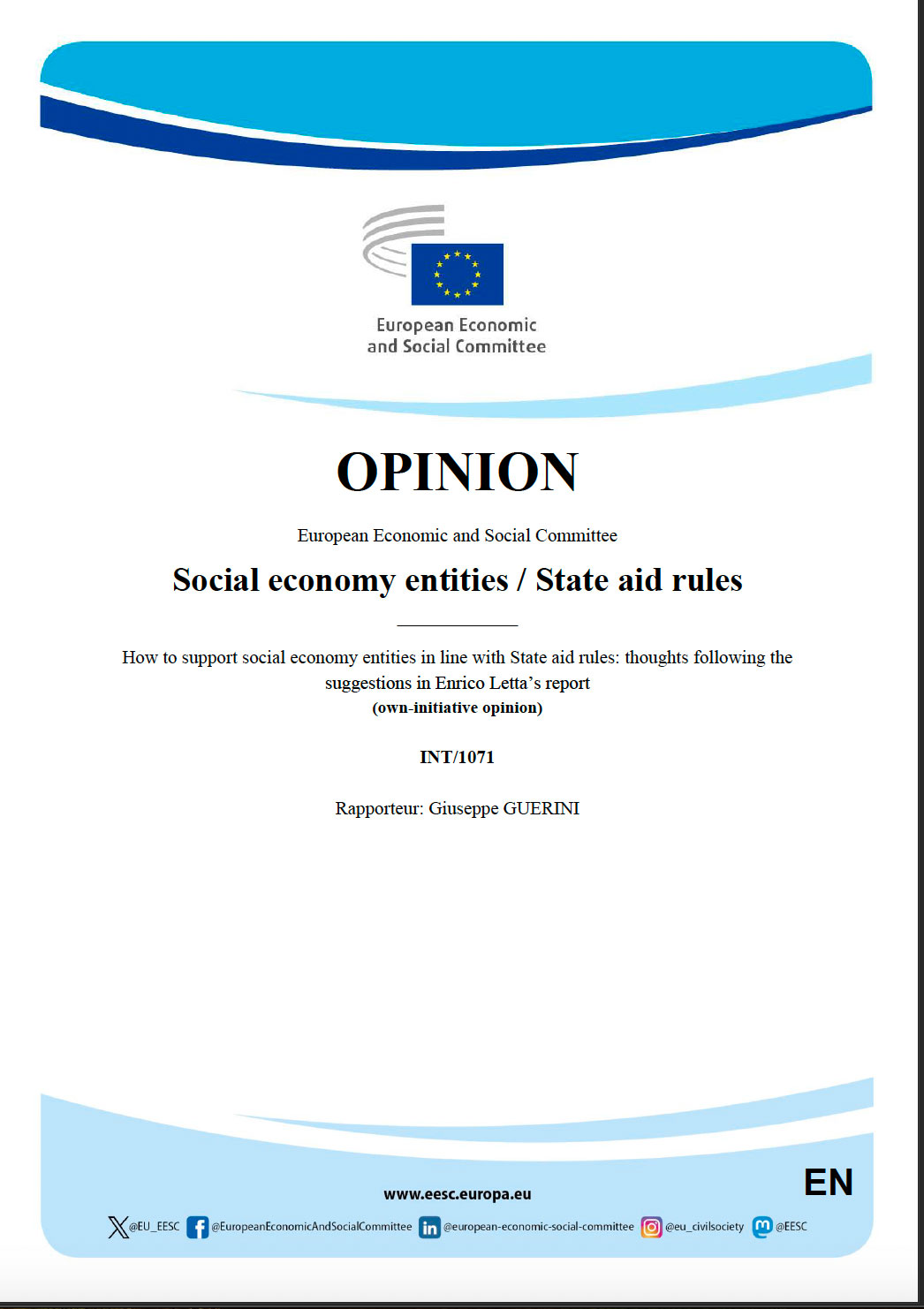The European Economic and Social Committee (EESC) has urged the European Commission and Member States to review and adapt state aid rules to ensure better support for social economy entities. This is stated in the opinion “Social economy entities and state aid rules”, whose rapporteur was EESC member Giuseppe Guerini. The opinion was adopted at the EESC plenary session on January 25, with 216 votes in favor, 4 abstentions, and 1 vote against.
Through this new opinion, the EESC highlights the need for the European regulatory framework to recognize the social value of these entities and facilitate their access to funding and public procurement. It stresses that social economy entities play a fundamental role in social cohesion and the provision of services of general interest. However, it points out that current state aid rules do not always recognize the specific nature of these entities, which may limit their access to public funding and their ability to compete on equal terms with other businesses.
The opinion references Enrico Letta’s report on the internal market, which emphasizes the need to adapt current regulations to facilitate access to credit and aid for social economy enterprises. Furthermore, the EESC underlines the importance of updating the rules governing aid for hiring disadvantaged or disabled workers, as outlined in the General Block Exemption Regulation.
Key recommendations for Member States
The EESC recommends that Member States make better use of existing mechanisms within EU regulations, such as aid for services of general economic interest, which can provide a more flexible framework for financing social activities. Additionally, it urges the European Commission to clarify the concept of “economic activity” in the context of the social economy to avoid restrictive interpretations that limit access to public funds. The activities of social economy entities are often classified solely within the scope of solidarity, preventing them from being recognized as economic activities and, consequently, from accessing financing aligned with their operations.
Another key point in the opinion is the need to introduce measures that allow for greater flexibility in the application of state aid rules when funds come from combined European and national resources. This is the case with the European Social Fund (ESF) and the European Regional Development Fund (ERDF), which are allocated at the national level. Currently, although these funds are largely governed by EU legislation, they remain subject to state aid rules due to the discretion national authorities have in their allocation.
Towards a more inclusive economic model
The EESC insists that the social economy must be recognized as a key pillar of the European social model and that state aid rules must be adapted to enable its development and consolidation. According to the EESC, revising the regulatory framework would not only benefit social economy entities but also strengthen the European Union’s economic resilience and its ability to respond to social and environmental challenges.
In this regard, the EESC welcomes the Political Guidelines for the next European Commission (2024-2029), which include the revision of state aid rules to promote investment in social housing and other key sectors of the social economy. Finally, the EESC urges the European Commission to continue its efforts to implement the Social Economy Action Plan, in line with the Liège Roadmap for the Social Economy in the European Union, signed in February 2024 by representatives of nineteen governments.







